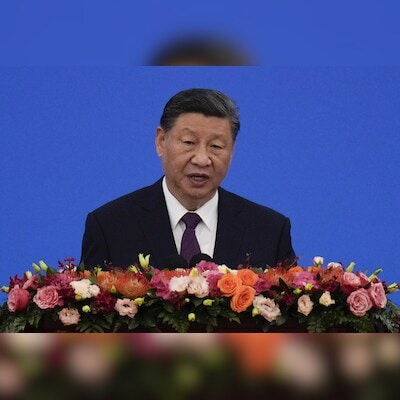Xi’s China proves a hard sell as officials seek investments overseas | World News

By Josh Xiao
Chinese officials are flocking abroad to answer President Xi Jinping’s call to woo foreign capital. Their pitch to investors is being met with doubt, partly due to the policies of their big boss.
Click here to connect with us on WhatsApp
That skepticism was on show at a ballroom in a four-star Singapore hotel last week, where officials from Inner Mongolia promoted their region’s rare earths sector to scores of potential investors.
That exchange underscored the challenges facing Chinese officials in convincing companies to spend in the world’s No. 2 economy. One official gauge of foreign direct investment clocked its lowest monthly reading since mid-2018 in May, as investors show caution amid Xi’s conflicting campaigns to bolster national security against foreign threats and further open the economy.
“Once the confidence is lost, it is not that easy to restore,” said Sun Yun, director of the China Program at the Washington-based Stimson Center. Whether officials’ drive to take their sales pitch abroad will succeed “remains to be seen,” she added.
China’s top leaders appear aware of the problem, with Xi making time for a rare meeting with American business leaders in March to shore up confidence. Premier Li Qiang and He Lifeng have separately vowed in the past week to make a greater effort to attract foreign capital.
For Communist Party officials chasing fresh capital, Singapore has emerged as a popular stop thanks to its proximity to China, friendly ties with Beijing and majority-Chinese population. But even in that welcoming environment hard questions remain.
In the city-state earlier this year, one attendee at a roadshow asked a Shanghai official if China protects private property — echoing concerns business people raised in the wake of Xi’s abrupt crackdowns on the education and technology sectors.
Officials from China’s southern Hunan province in May tried to drum up interest for their tech parks at a hotel in downtown Singapore to rounds of polite applause.
Such trips were rare before the pandemic, but China’s slowdown had prompted Hunan’s commerce department to urge officials to go overseas and search for investors, one of the officials said, asking not to be identified discussing sensitive matters.
“They are going overseas because there is a clear directive from the central government to attract foreign investment,” said Dominic Chiu, senior analyst at Eurasia Group. Now they need to attract foreign investment in order to get ahead in the promotional ladder, he added.
Overseas Trips
Chinese officials began heading abroad after pandemic controls were lifted last year. Since then, the nation’s housing slump has dragged on domestic spending, while trade tensions with the US and Europe have cast a shadow over the manufacturing sector that’s overall been a bright spot for growth.
One district in Beijing dispatched delegations to France and the United Arab Emirates last month to explore opportunities. Officials from a manufacturing area of the western province of Sichuan toured Cambodia in May, while a delegation from the northwestern Shaanxi province visited Denmark, Germany and Austria that month to exchange notes on green energy and tourism projects.
The delegations — which often feature business leaders — have also been driven by a desire to expand overseas amid sluggish demand at home. Chinese firms made $60.2 billion in foreign direct investment in the first five months of the year, a 16 per cent rise on the same period in 2023.
Some overseas expeditions have found success. On a trip to Germany, officials inked a pledge with Volkswagen AG to further cooperation in the northeastern province of Jilin. The local government said in a statement that visits to Europe had also helped Chinese car and drug companies enter that market, without elaborating.
Officials’ trips are normally constrained to one week by domestic rules that have tightened bureaucrats’ overseas travel, according to Lu Xi, a senior lecturer at the Lee Kuan Yew School of Public Policy, who says the outcomes of such excursions vary.
In Singapore, officials from large cities with overseas ties that pre-date the pandemic are managing to leverage those existing relationships, said Lu, who has been meeting with such delegations.
“But for lower-level delegations, the success rate is almost zero,” he added. Those events are “essentially just for show and rarely result in substantive investment cooperation.”
